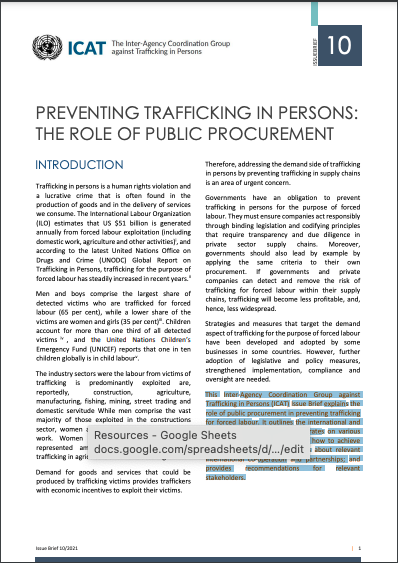United States Advisory Council on Human Trafficking Annual Report 2022
GuidancePublicationsThis report is about sharing topics that draw from the author's personal and professional experiences that they, as a Council, believe are important to effectively address human trafficking today. This report reflects the passion of those with lived...Read More

